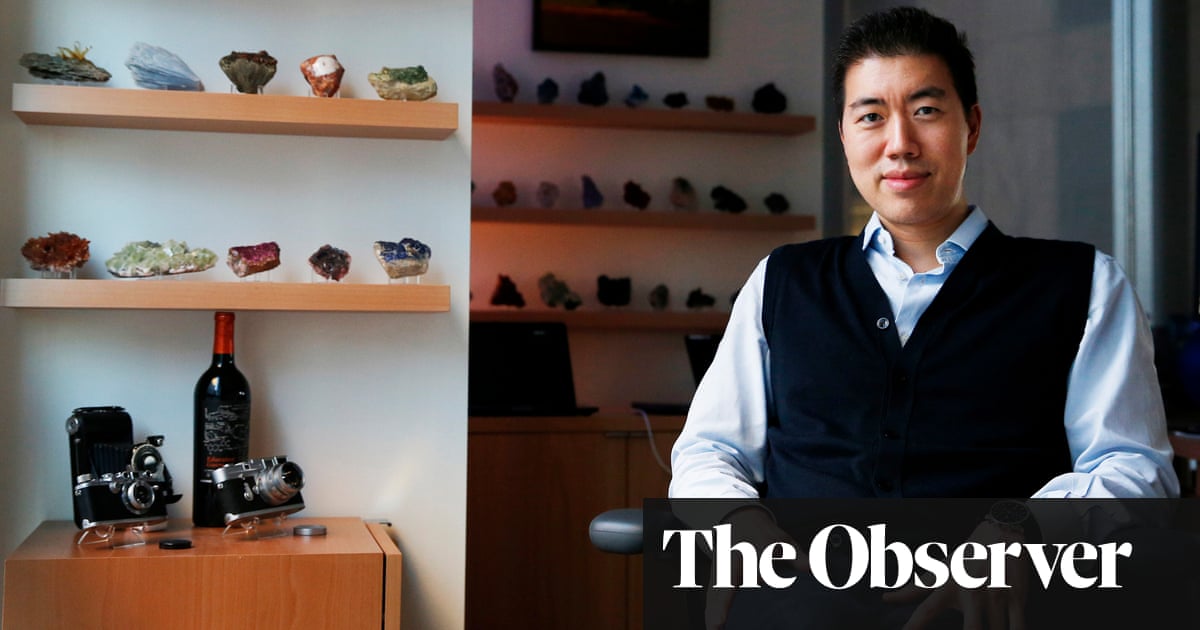Photo credit: www.theguardian.com
Celebrated Scientist David Liu Donates Annual Salary to Support Lab Staff and Students
Over the last five years, David Liu, a prominent professor at the Broad Institute of MIT and Harvard, has adopted a unique Thanksgiving tradition: he donates his entire salary, after tax deductions, to support the staff and students working in his lab. This philanthropic gesture began in response to the COVID-19 pandemic when Liu discovered that some students could not afford bicycles to avoid public transport. Recognizing their dedication and financial constraints, he decided to intervene.
Initially, Liu attempted to provide Amazon eGift cards, but this effort resulted in skepticism, with recipients fearing scams. He then switched to a more traditional approach, writing out checks to ensure his support was received without doubt.
As a co-founder of several innovative companies, Liu has the financial means to forgo his academic salary. His recent accolade, the $3 million Breakthrough Prize in Life Sciences, adds further resources to his philanthropic efforts. This prestigious award, presented at a ceremony in Los Angeles, recognizes groundbreaking achievements in scientific research. During this year’s ceremony, additional life sciences prizes were awarded for significant advancements in multiple sclerosis treatments and the development of GLP-1 agonists, more commonly known as “skinny jabs.”
Other distinguished winners included mathematician Dennis Gaitsgory from Bonn, acknowledged for his contributions to the Langlands program, and a collective of over 13,000 researchers from CERN who tested theories in modern particle physics.
Liu received acclaim for his invention of groundbreaking gene editing technologies, specifically base editing and prime editing. Base editing has already been instrumental in treating a patient at Great Ormond Street Hospital in London, saving the life of a British teenager diagnosed with leukemia.
The pursuit of effective gene editing has been ongoing for over a decade, with hopes pinned on developing therapies that can correct genetic mutations responsible for numerous hereditary diseases. While previous gene editing methods were effective at disabling malfunctioning genes, they fell short in terms of correction—an area where Liu’s innovations offer significant promise.
Base editing enables precise alterations to individual letters in the genetic code, whereas prime editing functions similarly to the search-and-replace feature in word processors, allowing comprehensive modifications to DNA sequences. “The vast majority of known pathogenic mutations can now be corrected using prime editing or base editing,” Liu asserts, highlighting the monumental potential of these advancements.
Early Influences and Diverse Interests
Liu’s fascination with science was rooted in his childhood experiences in Riverside, California, where he developed an early interest in exploring nature. His academic journey led him to Harvard, where he collaborated with Nobel laureate EJ Corey, a mentor who ignited Liu’s enduring passion for experimental molecular science.
His interests extend beyond academia; Liu once designed a six-gram carbon fiber plane for radio-controlled enthusiasts and created a “mouseapult” using Lego bricks and heat sensors to entertain his own cats. He also ventured into the video game industry, testing games and providing voice acting for enhance gameplay experiences.
Following a hospital stay for an operation, Liu pursued a more risk-prone hobby: blackjack. He developed a simulator to master the game’s mathematics, refining his card counting techniques, which led to his temporary ban from MGM Grand casinos after success in Las Vegas.
A Journey to Revolutionize Gene Editing
As a professor at Harvard, Liu channeled his creative and analytical skills into addressing challenges in gene editing. Initial efforts were centered on disabling genes, a tactic that proved insufficient for effectively treating genetic disorders. Liu emphasized the need for correcting genes directly.
The first significant breakthrough occurred in 2016 when Liu’s team unveiled base editing, which can rectify single-letter mutations that account for nearly a third of genetic illnesses. The innovative procedure harnesses CRISPR technology to accurately identify and alter faulty genes. Waseem Qasim, a pediatric immunologist at Great Ormond Street Hospital, remarked on the monumental implications of the research, recalling his excitement upon reading the paper.
A follow-up study in 2019 introduced prime editing, a potentially more versatile technique capable of addressing almost all mutations causing disease. Notably, base editing’s efficacy was demonstrated in 2022 through the treatment of Alyssa Tapley, a 13-year-old leukemia patient, who remains in complete remission following her procedure.
Currently, numerous clinical trials for base and prime editing are underway, showing promising results for diseases such as leukemia, sickle cell disease, beta-thalassemia, and high cholesterol. However, challenges remain, particularly in delivering therapies directly within patients’ bodies—a critical hurdle that researchers continue to strive to overcome.
Moreover, as Qasim’s team expands their trial efforts, they face significant financial challenges. “We are going to end up with treatments that work, but that nobody wants to pay for,” Liu warns, highlighting the precarious state of funding for health innovations.
Concerns for the Future of Science
Despite his optimism over scientific advancements, Liu harbors serious concerns for the future of research in the United States, expressing alarm over recent trends of workforce reductions and funding cuts. He believes these actions threaten to derail decades of scientific progress, with global consequences.
Liu emphasizes the importance of nurturing scientific inquiry as a means to enhance quality of life, stating, “To me, slashing funding and staffing in science is like burning your seed corn. It’s just destroying it.” He envisions a future driven by scientific advancements that ensure safer and healthier lives for coming generations—a goal inherently intertwined with continued investment in research.
Source
www.theguardian.com

